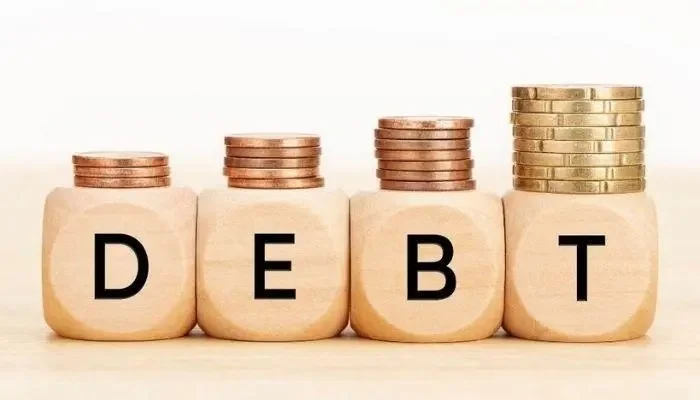
Nigerian states debt. Top 10 States in Nigeria with the Highest Debt Profile: Notwithstanding National Decline, Some States Remain Deep in Debt
StartSmart Nigeria learned that Nigeria’s subnational debt profile witnessed a significant turnaround in 2024, with new data disclosing that the combined debt stock of the 36 states dropped speedily by 32.32% year-on-year. The figures show a fall from N5.86 trillion in 2023 to N3.97 trillion in 2024, marking a substantial contraction in state-level borrowing.
This decline is seen as a positive sign that several state governments are now prioritizing debt sustainability, budgetary discipline, and exploring alternative financing models to navigate mounting fiscal challenges.
Despite this overall drop, several states still maintain a high debt burden, largely due to either legacy financial obligations or an aggressive investment in infrastructure and capital projects seen as essential for long-term economic growth.
StartSmart Nigeria reports that the following states recorded the highest debt stock in 2024. Here’s a breakdown of the Top 10 most indebted states and how their debt profile compares with the previous year: Nigerian states debt
Top 10 States in Nigeria with the Highest Debt Profile Presently
1. Lagos – N900.19 billion
Lagos remains Nigeria’s most indebted state, although it recorded a 14.16% decline from N1.05 trillion in 2023. The state’s strong IGR base (over N500 billion annually) and strategic use of Public-Private Partnerships (PPPs) have helped manage its debt load. Nigerian states debt
The state continues to pursue large-scale infrastructure projects, but a shift toward concessional borrowing, refinancing, and extending maturities has improved fiscal sustainability.
2. Rivers – N364.39 billion
Rivers recorded a sharp 56.67% increase in debt from N232.58 billion in 2023, placing it second on the list. The post-election period saw a spike in capital projects, leading to increased borrowing for infrastructure such as roads, schools, and hospitals. Nigerian states debt
Despite the high debt, Rivers boasts a strong IGR-to-operating-expense ratio (121.26%), offering some buffer for its aggressive fiscal approach. Nigerian states debt
3. Ogun – N211.86 billion
Ogun’s debt fell by 23.98% from N278.68 billion, driven by a surge in IGR and refinancing of legacy loans. With a projected IGR of N240 billion in 2024, Ogun is one of the least FAAC-dependent states.
A focus on digital revenue collection and economic diversification underpinned this improvement, making the state a model for subnational fiscal discipline. Nigerian states debt
4. Delta – N199.58 billion
Delta slashed its debt by a remarkable 46.55% from N373.41 billion in 2023. The reduction was driven by the repayment of over N130 billion in legacy debt and a pivot to concessional financing and improved credit terms.
Delta’s new debt strategy reflects a shift toward long-term fiscal consolidation, with a reduced appetite for commercial loans.
5. Bauchi – N143.95 billion
Bauchi posted a 10.48% debt reduction from N160.81 billion, maintaining its rank among the top five. Its 2024 “Budget of Consolidation and Renewed Focus” prioritized ongoing projects over new borrowings. Nigerian states debt
Stringent budget oversight by the State Assembly ensured fiscal discipline and minimized unnecessary debt accumulation.
6. Niger – N140.74 billion
Niger State recorded a modest 0.67% increase in debt from 2023, signaling cautious borrowing. The government focused on capital-intensive projects like urban renewal while maintaining debt under control through concessional loans and strategic financing.
7. Imo – N126.14 billion
Imo achieved a significant 41.90% drop from N217.11 billion, reflecting one of the steepest debt reductions among the top 10. This was accomplished through debt restructuring, stronger IGR, and digital revenue systems. Nigerian states debt
With IGR growing from N400 million in 2020 to nearly N4 billion in 2025, Imo reduced its reliance on debt and improved internal funding capacity.
8. Benue – N122.57 billion
Benue’s debt dropped 34.51% from N187.18 billion in 2023. This reflects a more cautious fiscal stance, better debt servicing, and a focus on internal revenue and expenditure control. Nigerian states debt
The state’s alignment with the national push for sustainable debt helped stabilize its financial outlook.
9. Akwa Ibom – N122.19 billion
Akwa Ibom cut its debt by 35.85%, down from N190.48 billion, thanks to increased oil revenue and improved fiscal discipline.
As a major oil-producing state, Akwa Ibom leveraged higher FAAC allocations and minimized borrowing, showing strong debt control efforts in 2024.
10. Enugu – N119.28 billion
Enugu was the only state among the top 10 to increase its debt in 2024, recording a 29.36% rise from N92.21 billion. This spike is attributed to its expansive N521.5 billion 2024 budget—focused on capital projects under Governor Peter Mbah’s “Budget of Disruptive Economic Growth.”
Despite targeting N300 billion in IGR, the state still leaned heavily on borrowing: N71 billion in domestic loans and N32.75 billion from foreign sources, sparking concerns about sustainability and transparency. Nigeria’s state debt
Frequently Asked Questions
What is the current debt profile of Nigerian states in 2024?Which state has the lowest debt in Nigeria in 2024?What is the Debt Management Office (DMO) in Nigeria?What is considered a high debt profile for a Nigerian state?How does Internally Generated Revenue (IGR) affect state debt?Are Nigerian states allowed to borrow externally?Why do Nigerian states still borrow despite receiving FAAC allocations?What are concessional loans and how do states benefit from them?Which state in Nigeria has the highest Internally Generated Revenue in 2024?Can a state go bankrupt due to high debt?How are states managing debt repayment in 2024?What is the long-term impact of state debt on Nigeria’s economy?
Conclusion
StarSmart Nigeria reports that while many Nigerian states are actively lessening their debt stock, a few continue to borrow heavily for development goals. Experts warn that strategic borrowing, improved revenue mobilization, and fiscal transparency remain critical for long-term financial health at the state level. Nigerian states debt
Stay connected with Startsmart Nigeria for more insights into Nigeria’s fiscal trends and subnational debt management.





GIPHY App Key not set. Please check settings